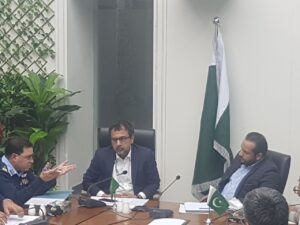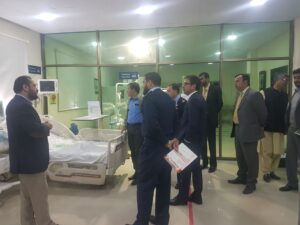COAS orders inquiry into Aftab Ahmed’s death Farooq Sattar’s coordinator Aftab Ahmed died earlier this month allegedly in Rangers custody. The incident has aggravated hostility against the operations of security forces in Karachi. The matter has been accepted by most civilians as something routine by extension of the idea that security forces subject their arrestees immorally and illegally.
This is considered as an institutional problem rather than an anomaly. The officials involved have been suspended till further investigation is completed but the issue of why Aftab Ahmed was even in Rangers custody fueled the belief that the Karachi Operation was always meant as a direct attack on the MQM and hence, on the political voice of the Urdu speaking diaspora altogether. Not only has this incident increased hostility against paramilitary forces but has caused tension among the Urdu speaking community of their secure future in Karachi. The unexplained death has also gotten negative international attention from groups like the Human Rights Watch, which Pakistan cannot afford presently. Therefore, it must be realized that while Raheel Sharif has taken steps to bring the matter to justice, the Government must support his efforts, condemning the attack and reassuring the people of Pakistan that no one is above the law. Furthermore, they must make efforts to make the reasons for arrests and detentions transparent and conduct questioning under due process of law.
II.
Former ISI Chief Gen. Pasha stated that the Mumbai attacks were planned by our people but was not our operation; Hussain Haqqani Former Ambassador to the U.S.A Hussian Haqqani discusses state affairs in his upcoming book, “India vs Pakistan: Why can’t we just be friends?” covering areas of convergence between the two countries. He discusses the issue of nuclear weapons in Pakistan and India stating that both states have a casual attitude towards the handling of their weapons and that there are substantial reasons for concern about nuclear weapons handling. He went on to say that significant tactical nuclear weapons in Pakistan are in the hands of lower level officials, not subjected to extensive security protocols. Furthermore, he stated that former ISI chief Shuja Pasha admitted active involvement in the Mumbai attacks. While it is the right of every individual to express opinions and publish books, the fact that this information is coming from a former state official makes it presumably credible and hence, largely accepted by large portions of readers. The Government of Pakistan must dedicate a section of their resources to monitor press releases, statements and reactions surrounding the book and be prepared for rebuttals against questionable allegations, if necessary. The Government must be particularly vigilant because if they fail to successfully refute wrongful statements or remained silent on the issue, it could be mistaken as acceptance of these statements as fact which would bring unnecessary inquiries in to their operations as a government.
III.
Chief of Army Staff confirms death sentence of 5 terrorists responsible for numerous attacks Chief of Army Staff General Raheel has once again confirmed the death sentence for at least five hardcore terrorists proven to be involved in recent attacks including the Safoora Goth attack, the killing of Sabeen Mahmud, the explosion near Saleh Masjid in Karachi and the attack on law enforcement officials. Whenever such an announcement is made, it is important to strengthen security in crowded or sensitive areas around the country. The last time a handful of terrorists were executed, it was responded to by the APS Peshawar attack which was a major blow to the entire nation. Moreover, there have been alerts for security threats in major cities especially Islamabad in places like malls and bazaars that would have high collateral if attacked. The government should monitor movements in and out of major cities but most importantly should dedicate security forces to the most vulnerable institutions, namely schools and hospitals. Educational institutes like large universities of course require attention but smaller facilities like public schools should not be neglected in the process and should in fact, being given more focus.
for more details please view pdf





